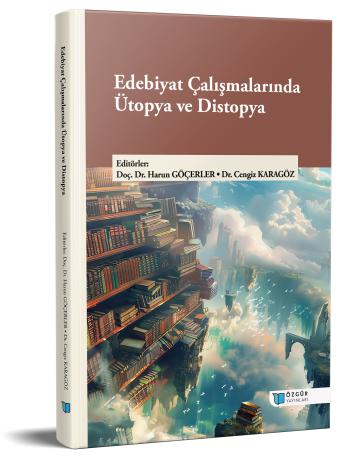
The Evolution of Dystopian Universe in Cinema: Blade Runner (1982) and Blade Runner 2049 (2017).
Chapter from the book:
Göçerler,
H.
&
Karagöz,
C.
(eds.)
2025.
Utopia and Dystopia in Literary Studies.
Synopsis
The adaptation form of the book Do Androids Dream of Electric Sheep? (1968), Blade Runner (1982) and Blade Runner 2049 (2017) present the future in the frame of transhumanism and one of its elements, the universe dystopia.
The first adaptation film Blade Runner (1982) is about at the end of the 20th century and the beginning of the 21st century. Within the framework of transhumanism, that is, when the integration of human beings with technology exceeds the point, it presents that the dominance of the universe is now in robots and that humans themselves are in search of their former dominance.
Robots are so human-like that a task force is formed to distinguish them from humans. They assign Rick Deckard, a former officer, to this discernment process. He presents to the reader what it is to come from dystopian lands, that is, from an extraterrestrial planet, and what it is to live with his adventures throughout the work, within the framework of transhumanism, and that our fate is again an enigma at the end of the work.
In contrast to the general events of the previous adaptation, the second adaptation film, Blade Runner 2049, presents the combination of biology and technology to the reader as what transhumanism is. In other words, it presents more detailed information to the reader by referring to the plot and characters of the first film, Blade Runner.
This study first signals that in the far future of transhumanism, when technology and biology merge, both robots can be more competent and dominant than humans, and genetics can be maintained and transferred from humans and, most interestingly, robots.

